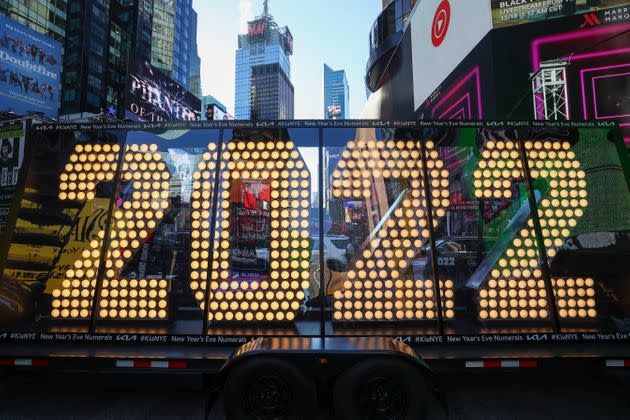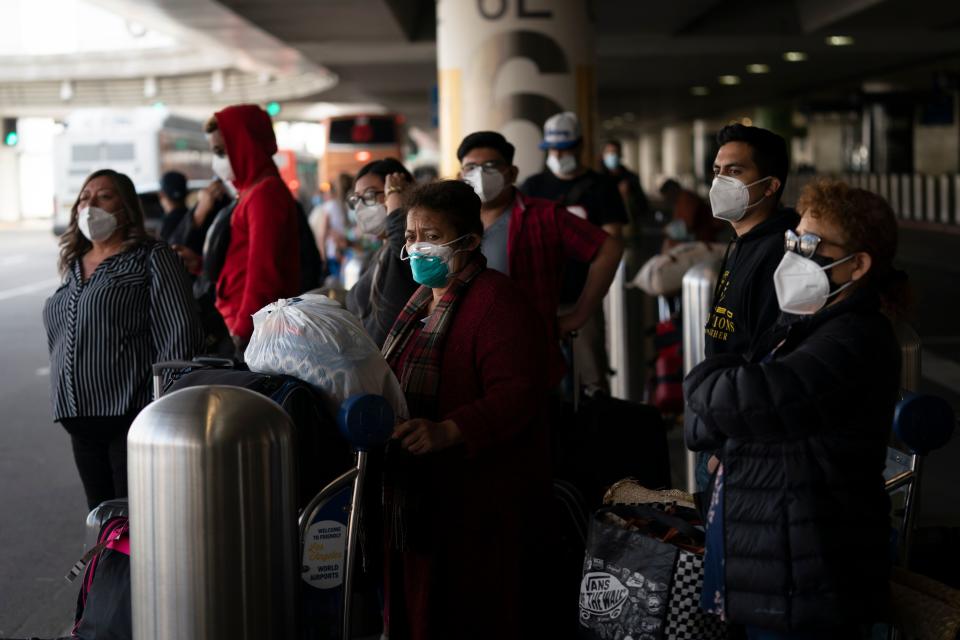LL Cool J Tests Positive For COVID, Won't Perform At Time Square New Year's Eve [UPDATE]
- Oops!Something went wrong.Please try again later.
- Oops!Something went wrong.Please try again later.
After testing positive for COVID-19, legendary rapper LL Cool J has canceled his performance at the 115th annual Times Square New Year’s Eve celebration.
“I know it’s disappointing to the millions of fans, but my test came back positive for COVID, which means I’ll no longer be able to perform as scheduled at NYRE,” the performer said in a statement, according to a Hollywood Reporter story published Wednesday. “We were ready, and I was really looking forward to ringing in 2022 in my hometown in a special way, but for now I wish everyone a healthy and happy New Year. The best is yet to come!”
R&B singer Chlöe has also pulled out of the celebration, according to MRC Entertainment.
The remaining performances, including from Journey, Karol G and French Montana, are still scheduled to take place on Dec. 31 in the heart of New York City as part of ABC’s “Dick Clark’s New Year’s Rockin’ Eve with Ryan Seacrest.”
Leading up to the ball drop at midnight, singer-songwriter KT Tunstall is expected to perform John Lennon’s “Imagine” as thousands of attendees ring in the new year.
On Dec. 23, New York City Mayor Bill de Blasio announced a scaled-back version of this New Year’s festivities due to the rapidly spreading omicron variant of the coronavirus. Instead of 58,000 attendees, the outdoor event will only have 15,000 attendees, who must show proof of vaccination.
De Blasio also outlined other coronavirus safety measures on Twitter.
New Yorkers have stepped up tremendously over the past year. There’s a lot to celebrate and the additional safety measures we’re announcing today will keep the fully vaccinated crowd at Times Square safe and healthy as we ring in the New Year. pic.twitter.com/SbStmLmfxQ
— Mayor Bill de Blasio (@NYCMayor) December 23, 2021
In a statement, Mayor-elect Eric Adams claimed this year’s Dec. 31 celebration would be “one of the safest” amid the ongoing pandemic.
“New York is the best place in the world to celebrate New Year’s Eve and now it will be one of the safest against COVID as well,” Adams said. “New Yorkers and visitors alike can now enjoy Times Square and the rest of our city as we ring in 2022.”
The pandemic forced officials to make last year’s ball drop a virtual celebration for the first time in the event’s history. The last major interruptions of the historic celebration took place in 1942 and 1943, due to wartime blackouts.

In 2020, Times Square Alliance President Tim Tompkins said that even though the annual event would be virtual that year , the show would go on.
“One thing that will never change is the ticking of time and the arrival of a New Year at midnight on December 31st,” Tompkins said in a press release.
According to the Alliance, hundreds of thousands of people typically attend the event in person, with an estimated 1 billion people watching via live broadcast.
New York has seen a record number of COVID-19 cases as omicron continues to spread rapidly through the U.S. On Dec. 19, there were 5,731 new cases in New York City, according to the mayor ― more than five times as many daily cases as in early November.
De Blasio has called the omicron variant a “fast and temporary phenomenon” that will surge, then decrease.
“We’re going to have a challenging few weeks, but the good news is based on everything our health care leadership understands at this moment, we are talking about a matter of weeks,” de Blasio said on Dec. 20, according to NBC New York. “We’re going to see a really fast upsurge in cases. We’re going to see a lot of New Yorkers affected by omicron.”
This story has been updated to reflect the cancellations of some originally scheduled performances.
This article originally appeared on HuffPost and has been updated.



